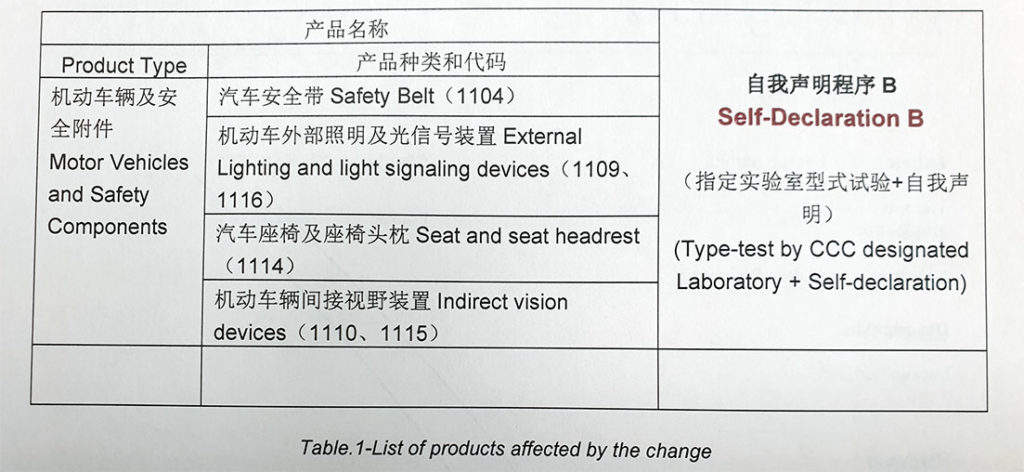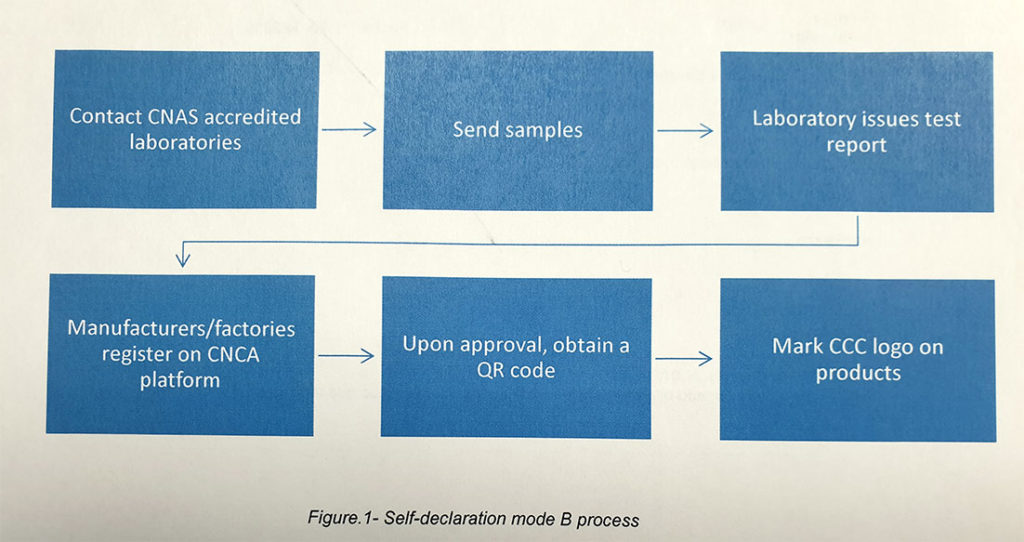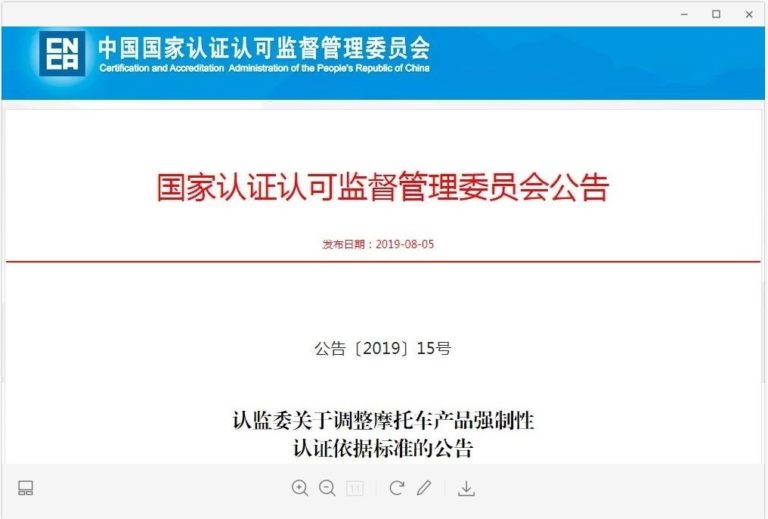1- Changing of CCC certification mode for the following products

In the latest announcement (No. 44, 2019, released on October 17, 2019), the Chinese certification authority CNCA (Certification and Accreditation Administration of the People’s Republic of China) made changes to the CCC certification regulations.
What has changed?
From October 17th, 2019, products such as Lighting and light signaling devices [for motor vehicle, motorcycle] (1109) (1116) and Indirect vision devices (1110) (1115) shall adopt the CCC Self-declaration mode as the certification mode.
What to do next?
Until December 31st, 2019, you can choose either one of the following:
- Maintain the validity of all current CCC certificates by completing annual audit, testing, follow-up sample testing, etc., of 2019.
- Contact the plants’ subsidiary, importer, or dealer in China (if any) to begin SELF-DECLARATION process immediately.
Note that current CCC certification for new applications must be completed before the end of 2019. From January 1st, 2020 onwards, all new applications and changes made to existing products must be done through SELF-DECLARATION.
What is SELF-DECLARATION certification mode B?
SELF-DECLARATION certification mode was introduced in 2018. It applies to products still under CCC product catalog and the certified products should still be marked with CCC logo. Lighting and light signaling devices [for motor vehicle, motorcycle] (1109) (1116) and Indirect vision devices (1110) (1115) must adopt SELF-DECLARATION mode B.

Last but not least, all CCC certificates related to the above mentioned products will be cancelled by the certification authority on November 1st, 2020. You may apply for CQC voluntary certification if you wish to do so.
What do we recommend?
To ensure product conformity and avoid problems that may arise, relying alone on Self-declaration may be risky. That is why we recommend our customers Voluntary Certification, which is similar to the traditional certification process, and it may significantly help to reduce the risk of getting detained at the Chinese customs. With regards to changes or modifications made to products but not timely reported on the CNCA Self-declaration platform, the risk increases greatly. Factory audit conducted by accredited auditors can help plants identify problems and suggest the quickest solutions.
With the information at hand, we trust that you will make the best possible decision for your factories/plants and clients, and if you should require any further information, do not hesitate to contact our certification consultants.
Yours sincerely,
CCIC Europe-Testing, S.L.

2- Selective Examination On 19 Types Of Import & Export Commodities
On August 12th, 2019, it was announced by the General Administration of Customs (Announcement No. 132 of 2019) to carry out selective examination on some import and export commodities in addition to legally inspected commodities of 2019. The scope of selective examination covers nineteen categories of import and export commodities, including seven categories of import commodities and twelve categories of export commodities.

3. CQC Held the 2019 IECEE-CB System Working Conference
CQC held the IECEE-CB system working conference, during which the important role of CQC as NCB of IECEE in international participation and certification business in the IECEE-CB system in recent years had been confirmed.
From July 31st to August 1st, 2019, CQC held the IECEE-CB system working conference in Baotou City. Director of the International Cooperation Office of the Certification Administration Department of the State Administration for Market Regulation, Li Guozhen, Vice President of CQC, and more than 70 representatives of the relevant product certification departments and branches of CQC and CB laboratories attended the meeting.
At the conference, the work of IECEE-CB system in the last year was summarized and reported. Besides, Du Chunjing afirmed the important role of CQC as NCB of IECEE in international participation and international certification business in the IECEE-CB system in recent years. Furthermore, he hoped that NCB would better use the IECEE-CB system to serve industrial development as well as quality improvement and facilitate international trade.
The international developments of the IECEE-CB system and the progress of various technical activites were also reported. Apart from that, the expert working groups not only summarized the work of the last year but also discussed the technical issues about the IECEE-CB system.